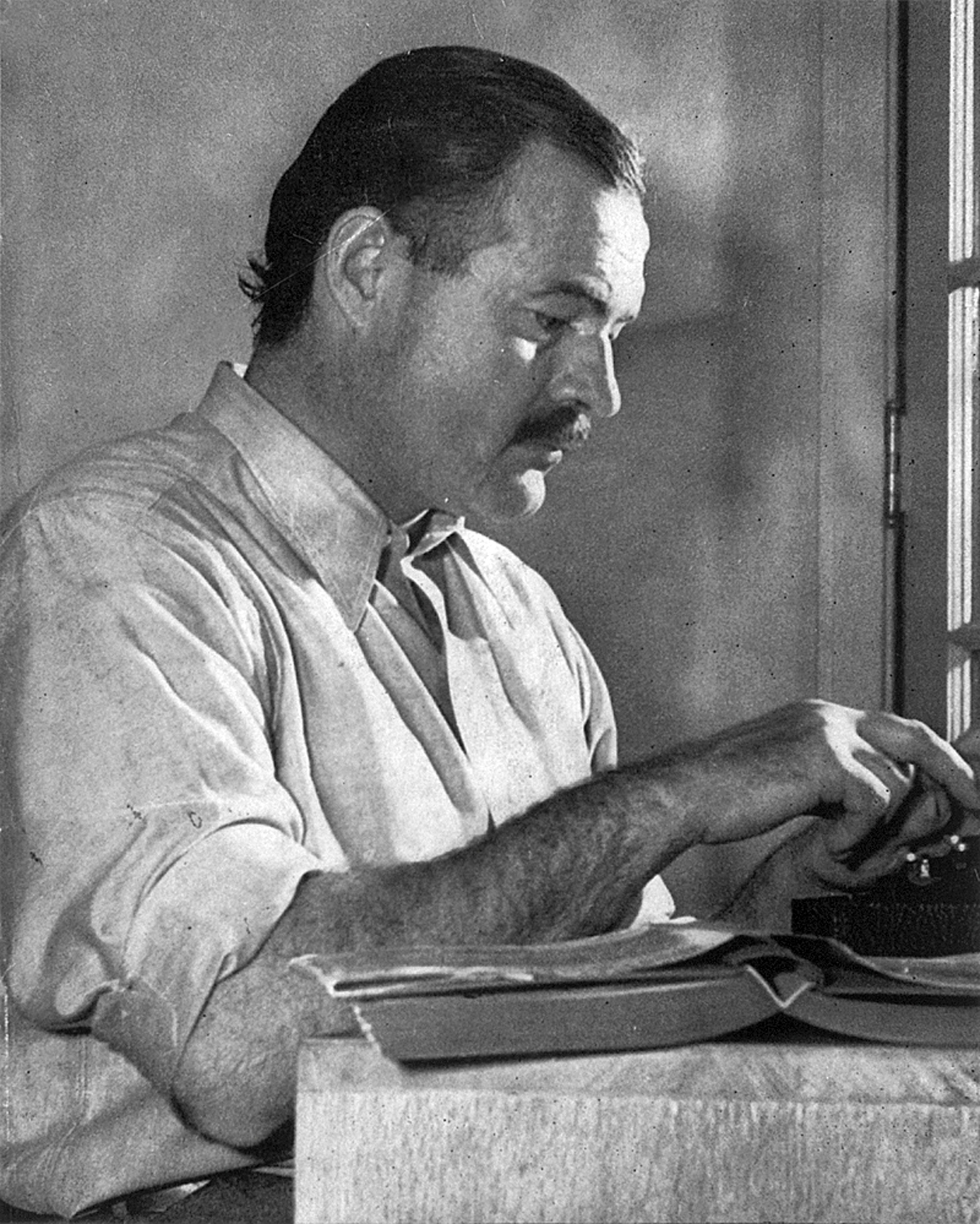Ernest Hemingway citations célèbres
Ernest Hemingway Citations
Le viel homme et la mer, 1952
“La mort est un remède souverain à toutes les infortunes.”
Mort dans l'après-midi, 1938
“Ça m'empêchera pas de le tuer, dit-il; tout superbe et formidable qu'il soit.”
Le viel homme et la mer, 1952
Le viel homme et la mer, 1952
“Dans tous les arts, le plaisir croît avec la connaissance que l'on a d'eux.”
Mort dans l'après-midi, 1938
Ernest Hemingway: Citations en anglais
“You never kill anyone you want to kill in a war, he said to himself.”
Source: For Whom the Bell Tolls
“Have faith in the Yankees my son. Think of the great DiMaggio.”
Source: The Old Man and the Sea
A Letter from Cuba (1934)
Contexte: All good books are alike in that they are truer than if they had really happened and after you are finished reading one you will feel that all that happened to you and afterwards it all belongs to you; the good and the bad, the ecstasy, the remorse, and sorrow, the people and the places and how the weather was.
Contexte: All good books are alike in that they are truer than if they had really happened and after you are finished reading one you will feel that all that happened to you and afterwards it all belongs to you; the good and the bad, the ecstasy, the remorse, and sorrow, the people and the places and how the weather was. If you can get so that you can give that to people, then you are a writer.
Letter to F. Scott Fitzgerald (1 July 1925); published in Ernest Hemingway: Selected Letters 1917–1961 (1981) edited by Carlos Baker
Contexte: Write me at the Hotel Quintana, Pamplona, Spain. Or don't you like to write letters. I do because it's such a swell way to keep from working and yet feel you've done something
“I do not need to get used to your silence. I already know it. I quite possibly love all of it.”
Source: The Complete Short Stories
“You should only read what is truly good or what is frankly bad.”
Source: A Moveable Feast
“I am thee and thou art me and all of one is the other.”
Source: For Whom the Bell Tolls
Source: Across the River and into the Trees
“The world is a fine place, and worth fighting for.”
Variante: The world is a fine place and worth fighting for and I hate very much to leave it.
Source: For Whom the Bell Tolls
“Now is no time to think of what you do not have. Think of what you can do with what there is.”
Variante: Now is no time to think of what you do not have.
Think of what you can do with that there is
Source: The Old Man and the Sea (1952)
“You're awfully dark, brother," he said. "You don't know how dark.”
Source: The Garden of Eden
Letter to F. Scott Fitzgerald (4 September 1929); published in Ernest Hemingway: Selected Letters 1917–1961 (1981) edited by Carlos Baker
“Besides, I'm not jealous. I'm just so in love with you that there isn't anything else.”
Source: Farewell to Arms
“I am an old man who will live until I die," Anselmo said.”
Source: For Whom the Bell Tolls
“I suppose if a man has something once, always something of it remains.”
Source: For Whom the Bell Tolls
“Please love me David the way I am. Please understand and love me.”
Catherine in Ch. 1
Source: The Garden of Eden (1986)
